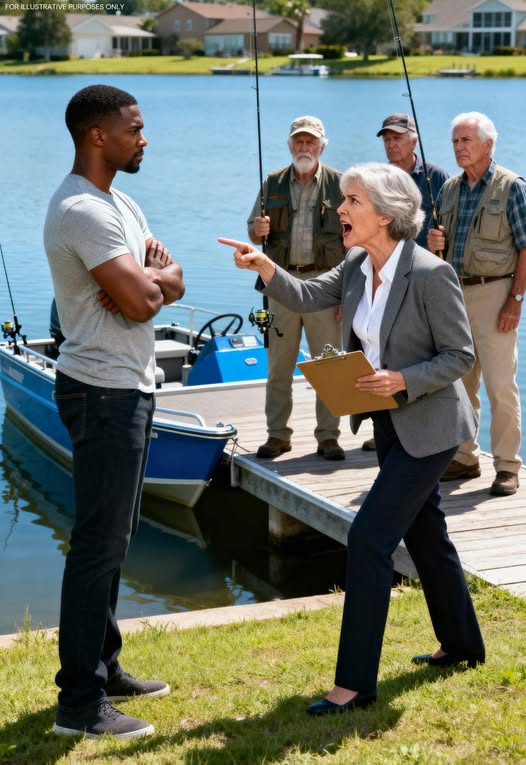Oliver Crane sought a peaceful refuge in the suburb of Alderbrook Hollow, and he found it in the serene ritual of taking his small boat out on the lake each morning. A quiet man who kept to himself, he was content with the simple pleasure of fishing from his private dock. This tranquility was abruptly interrupted when he received a formal notice from the Homeowners’ Association. The letter demanded he remove his “unsightly” vessel from his own dock, citing a community regulation. Oliver initially dismissed it as a bureaucratic error, but the confrontation became real when the HOA vice president, Margaret Fields, appeared at his doorstep to deliver the ultimatum in person.
Instead of arguing, Oliver retreated to his study and retrieved a leather-bound folder. Within it was a deed that held a secret the entire HOA had overlooked for years: he was the legal owner of Alderbrook Lake itself. The original developer had never transferred ownership of the water to the community, and Oliver had acquired it when he purchased his property. This meant the HOA had no jurisdiction over his dock or the water, a fact they were completely unaware of as they collected fees from a neighborhood fishing club for access. Oliver decided the time had come to set the record straight.
The stage for the revelation was the next HOA meeting. As board members discussed mundane rules about lawn care and mailboxes, Margaret Fields pointedly addressed Oliver’s violation. Calmly, he stood and placed the deed on the table, explaining that a significant misunderstanding was at play. When another board member insisted the lake belonged to the community, Oliver presented the irrefutable legal truth. The room fell into a stunned silence as the power dynamic instantly shifted, and residents began to question why they had been paying the HOA for access to a lake it did not own.
In the weeks that followed, the county records confirmed Oliver’s ownership, forcing the HOA to issue a formal apology and retract their violation notice. At the next community gathering, Oliver addressed his neighbors not with vengeance, but with grace. He established new, simple rules for the lake that promoted quiet enjoyment for all, banning gas engines and late-night noise. The community, relieved to have a reasonable steward, accepted his terms, and the lake returned to the peaceful haven it was meant to be.
Oliver’s story is a powerful lesson in knowing your rights and choosing diplomacy over conflict. He had the absolute authority to restrict all access to the lake but chose instead to foster community harmony. His boat remained on its dock, a silent symbol of a victory won not through domination, but through integrity and the quiet power of a single, undeniable truth.
